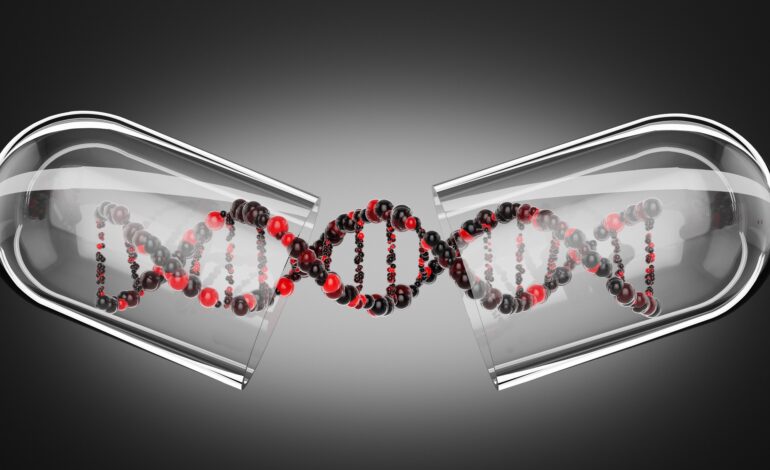Scientists Accelerate Evolution with Groundbreaking Technique

Researchers have developed a revolutionary method that condenses the process of evolution into mere minutes. This technique, known as directed evolution, enables scientists to rapidly evolve proteins, potentially paving the way for significant advancements in medical treatments.
The innovative method was detailed in a recent study published in the journal Science, conducted by scientists at the Scripps Research Institute. They introduced a system named T7-ORACLE, which can expedite the evolution of proteins by an astonishing 100,000 years. Co-senior author of the study, Peter Schultz, described the technique as akin to “giving evolution a fast-forward button.”
Traditionally, directed evolution required extensive rounds of DNA manipulation, with each round taking upwards of a week. In contrast, T7-ORACLE employs an engineered E. coli bacterium to facilitate a secondary DNA replication system that operates independently of the cell’s natural mechanisms. This allows scientists to introduce mutations at every cell division, which occurs approximately every 20 minutes.
Co-senior author Christian Diercks noted, “Instead of one round of evolution per week, you get a round each time the cell divides — so it really accelerates the process.” This significant advancement represents a leap forward in continuous evolution, enhancing the speed and efficiency of protein development.
Expanding the Horizons of Protein Evolution
Directed evolution is not a new concept; it saw a major breakthrough in 2018 when Frances Arnold won the Nobel Prize in Chemistry for her pioneering work in the field. Arnold’s approach allows scientists to essentially “breed” biomolecules, similar to agricultural practices used for crops and livestock. The recent advancements with T7-ORACLE and other methods, such as the PROTein Evolution Using Selection (PROTEUS) platform detailed in a May 2025 study in Nature Communications, promise to accelerate this process even further.
The implications of these developments are vast. According to The Scientist, directed evolution can lead to new medicines and enhance understanding of antibiotic resistance. The technology could also be pivotal in deactivating diseases and improving diagnostic methods. Beyond medical applications, it has the potential to create enzymes capable of breaking down environmental pollutants, such as the plastic found in soda bottles, as highlighted by Caltech Magazine.
The ability to evolve proteins within days instead of months is a game-changer. As Diercks emphasized, “What matters is that we can now evolve virtually any protein, like cancer drug targets and therapeutic enzymes, in days instead of months.” This rapid advancement not only enhances the potential for medical breakthroughs but also opens new frontiers in biotechnology and environmental science.
In summary, the advent of directed evolution techniques such as T7-ORACLE marks a significant milestone in scientific research, promising transformative applications across multiple fields.






